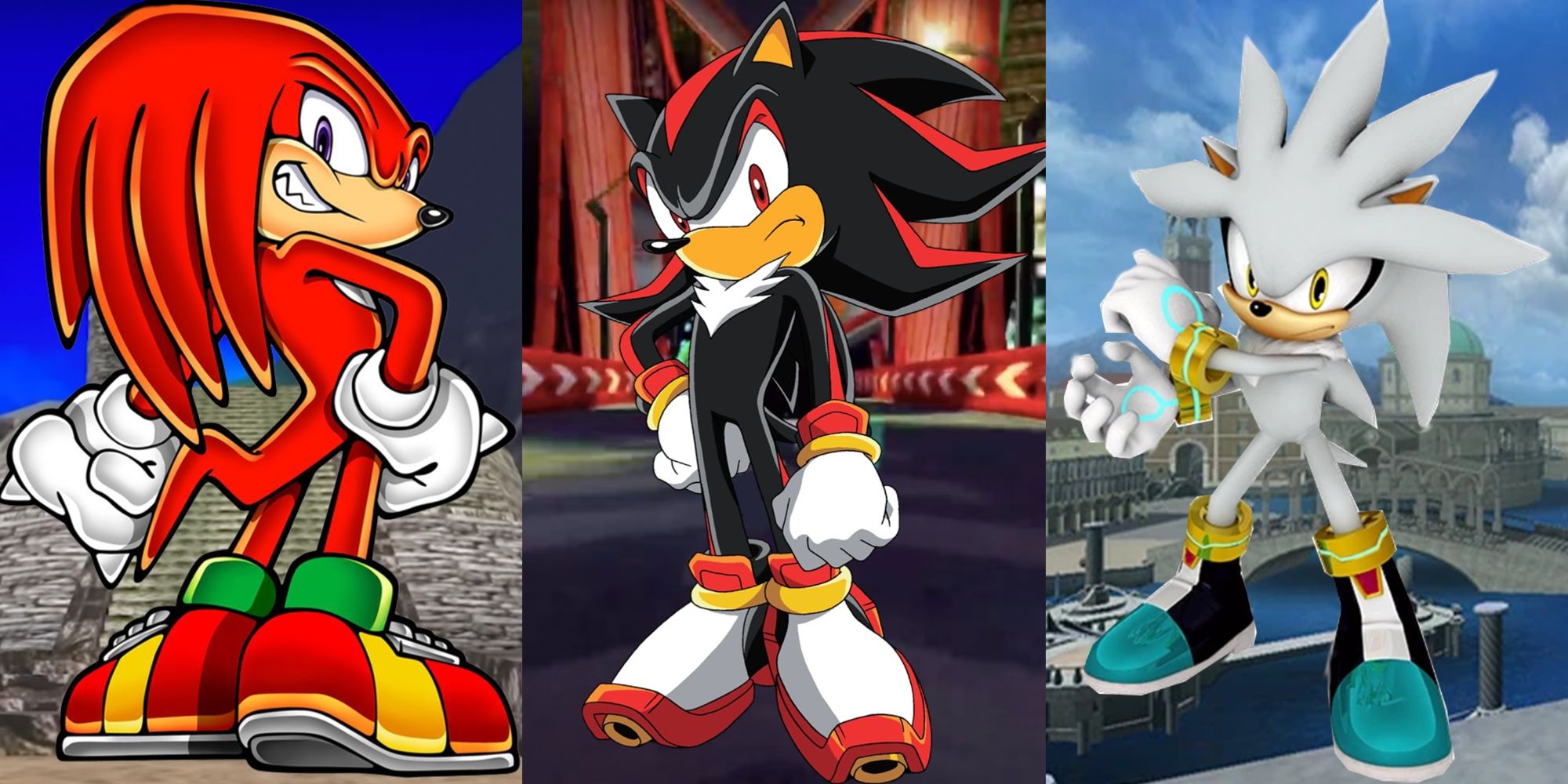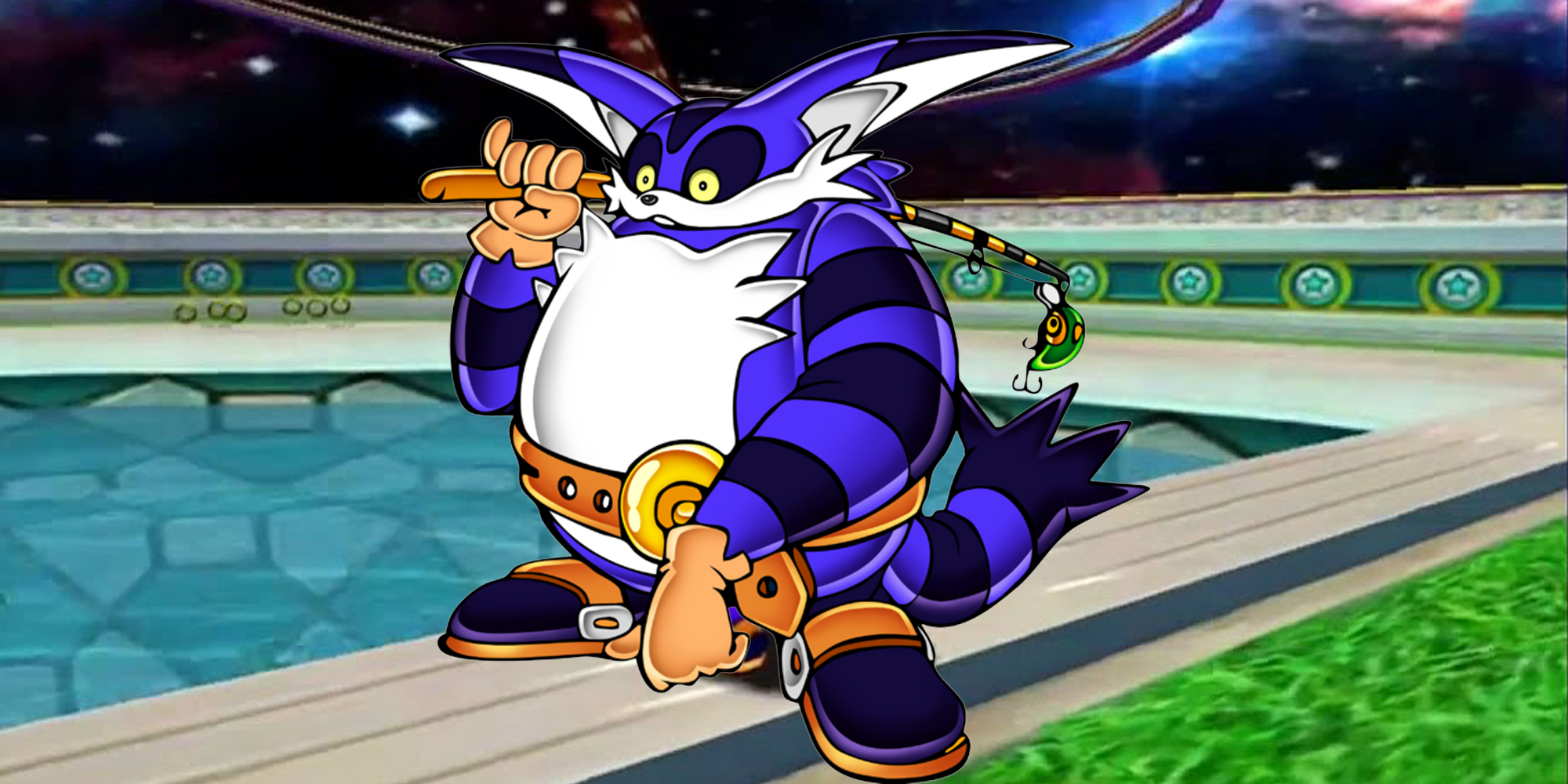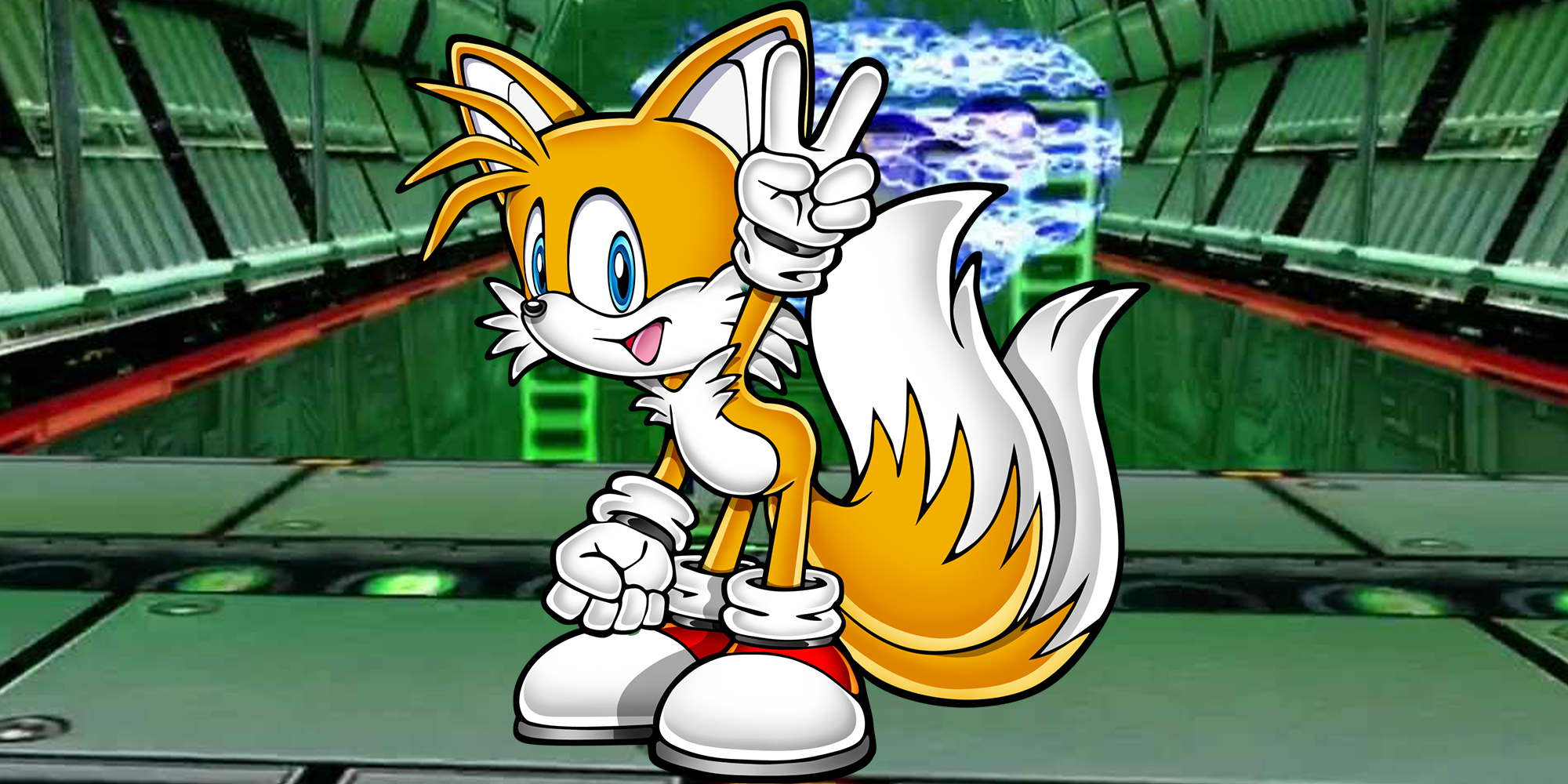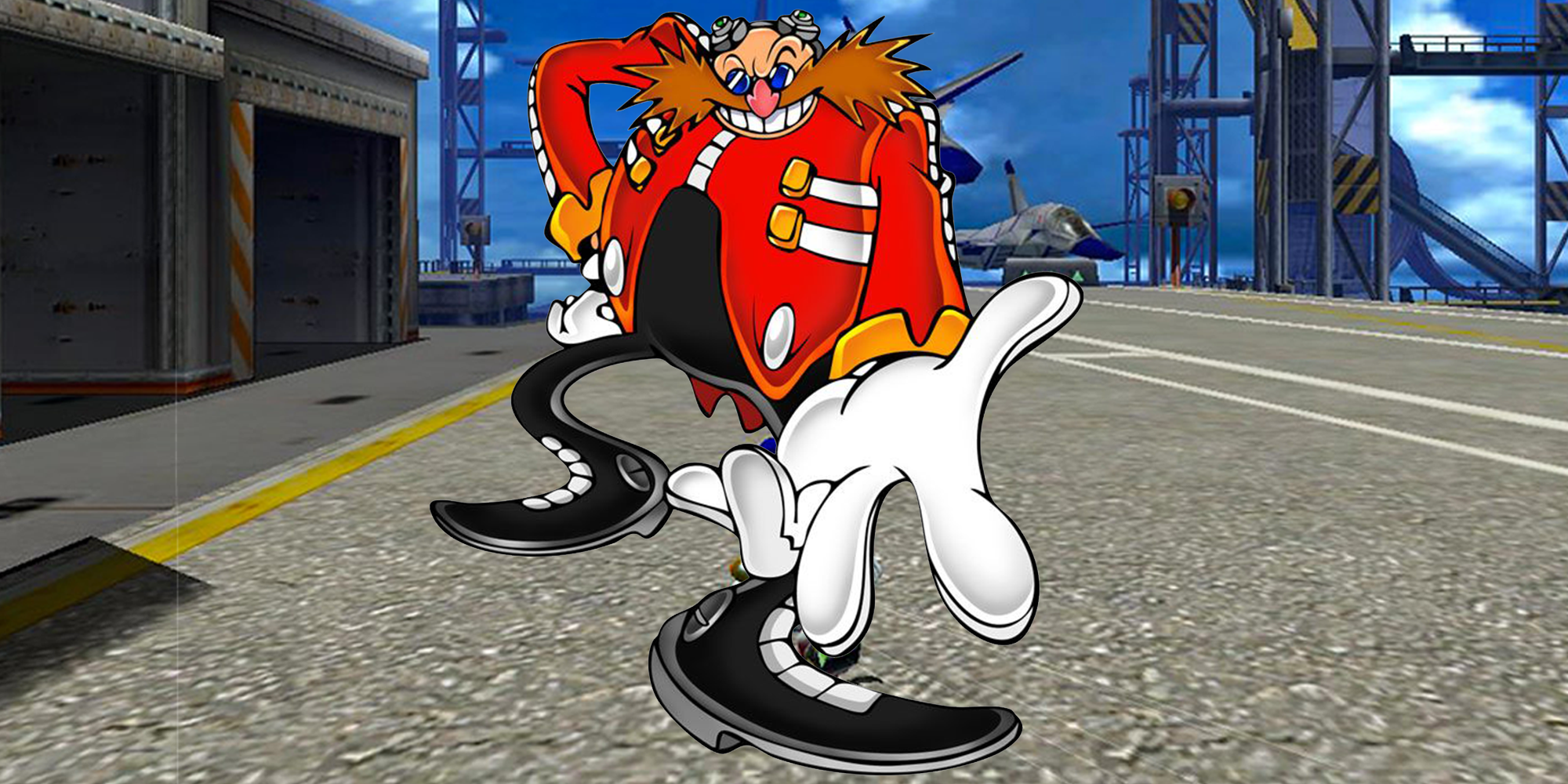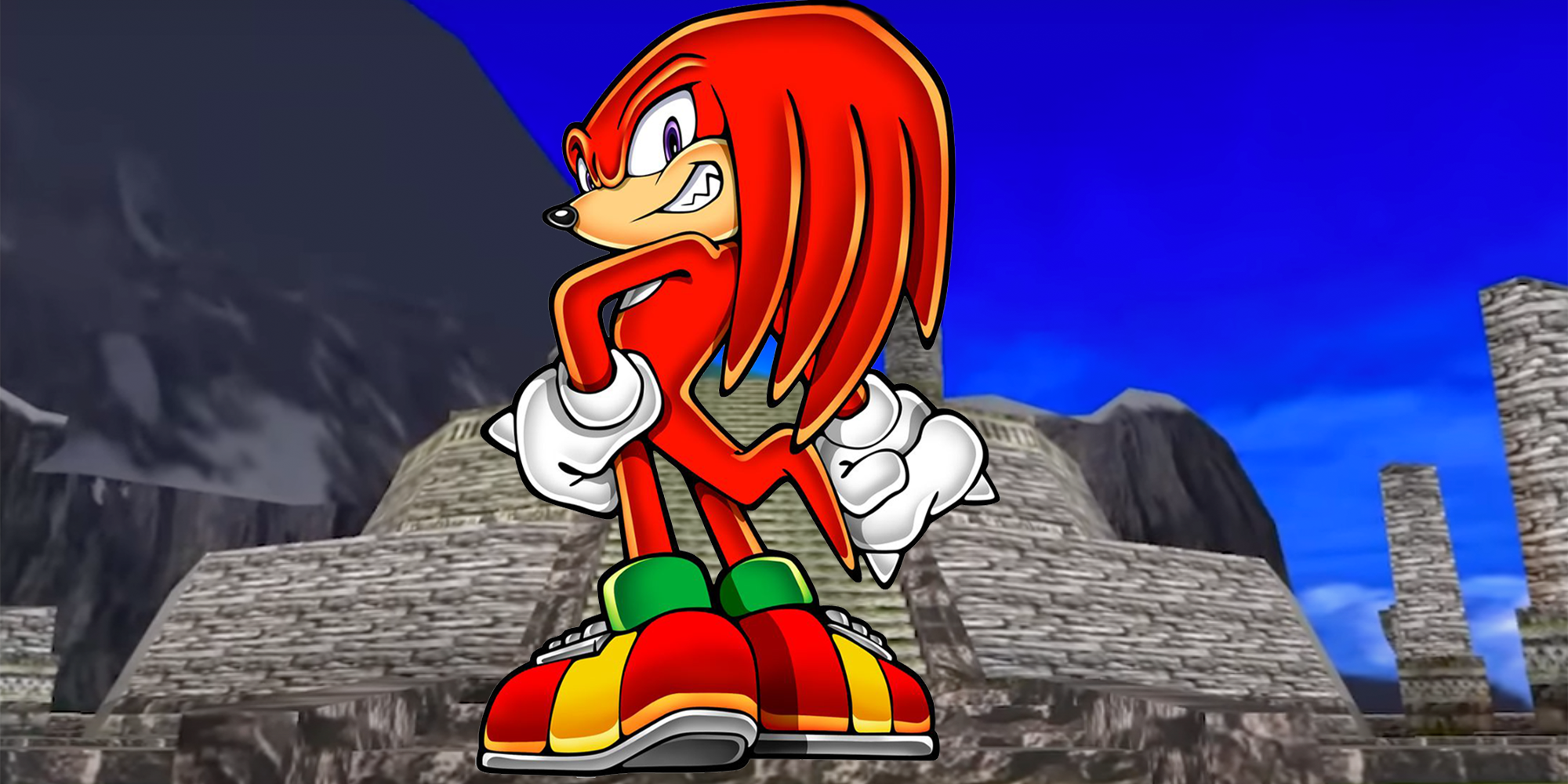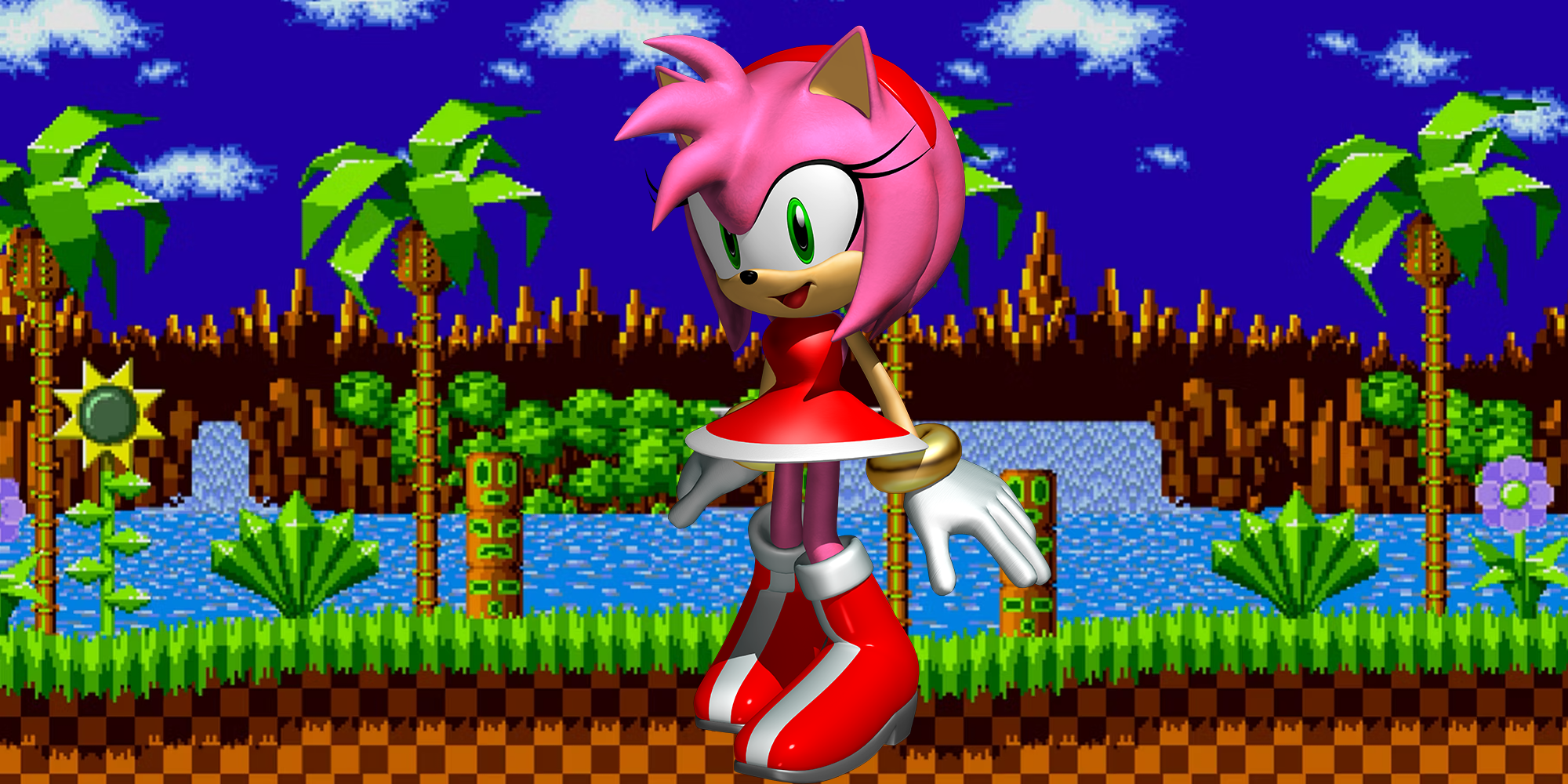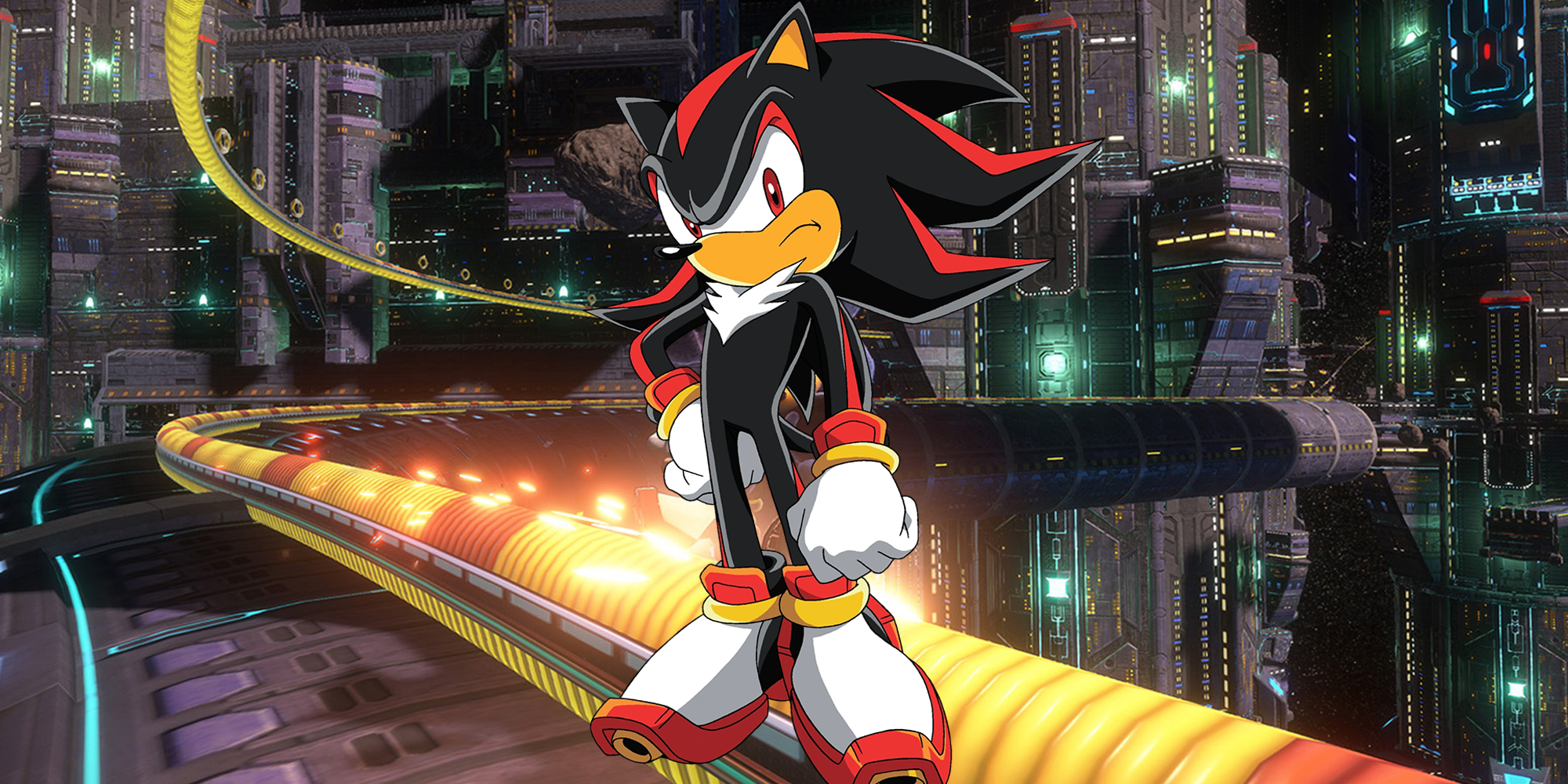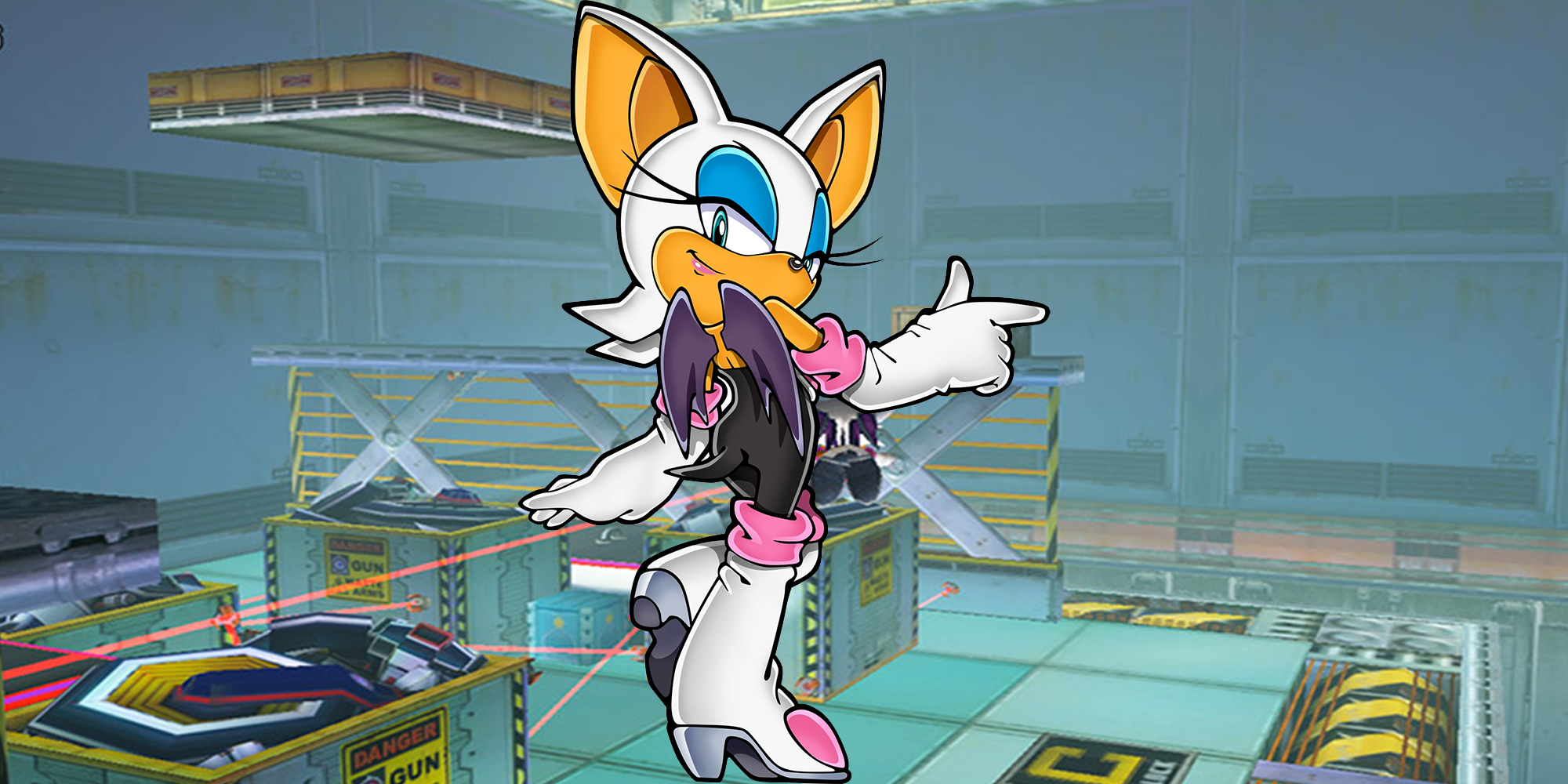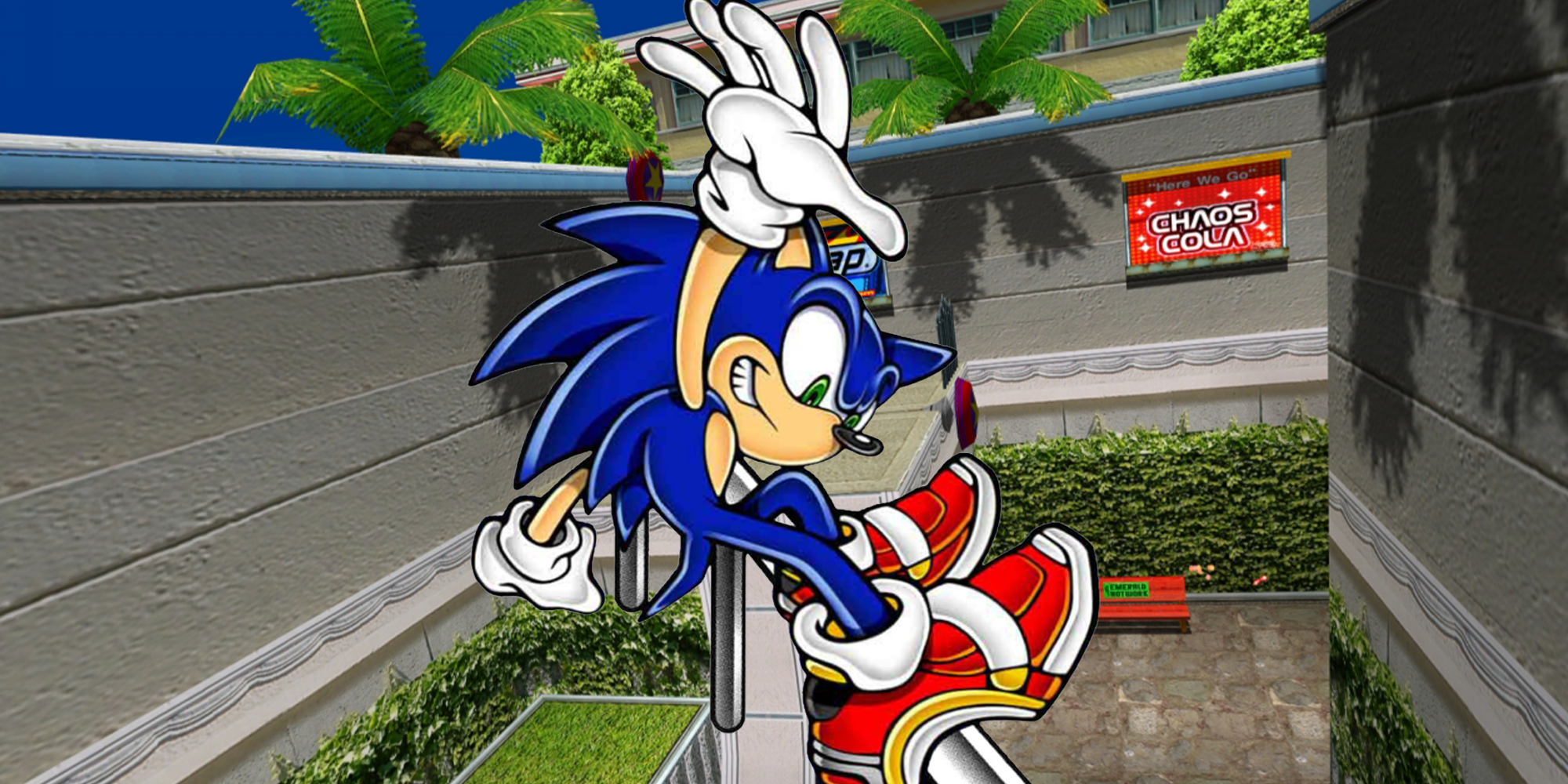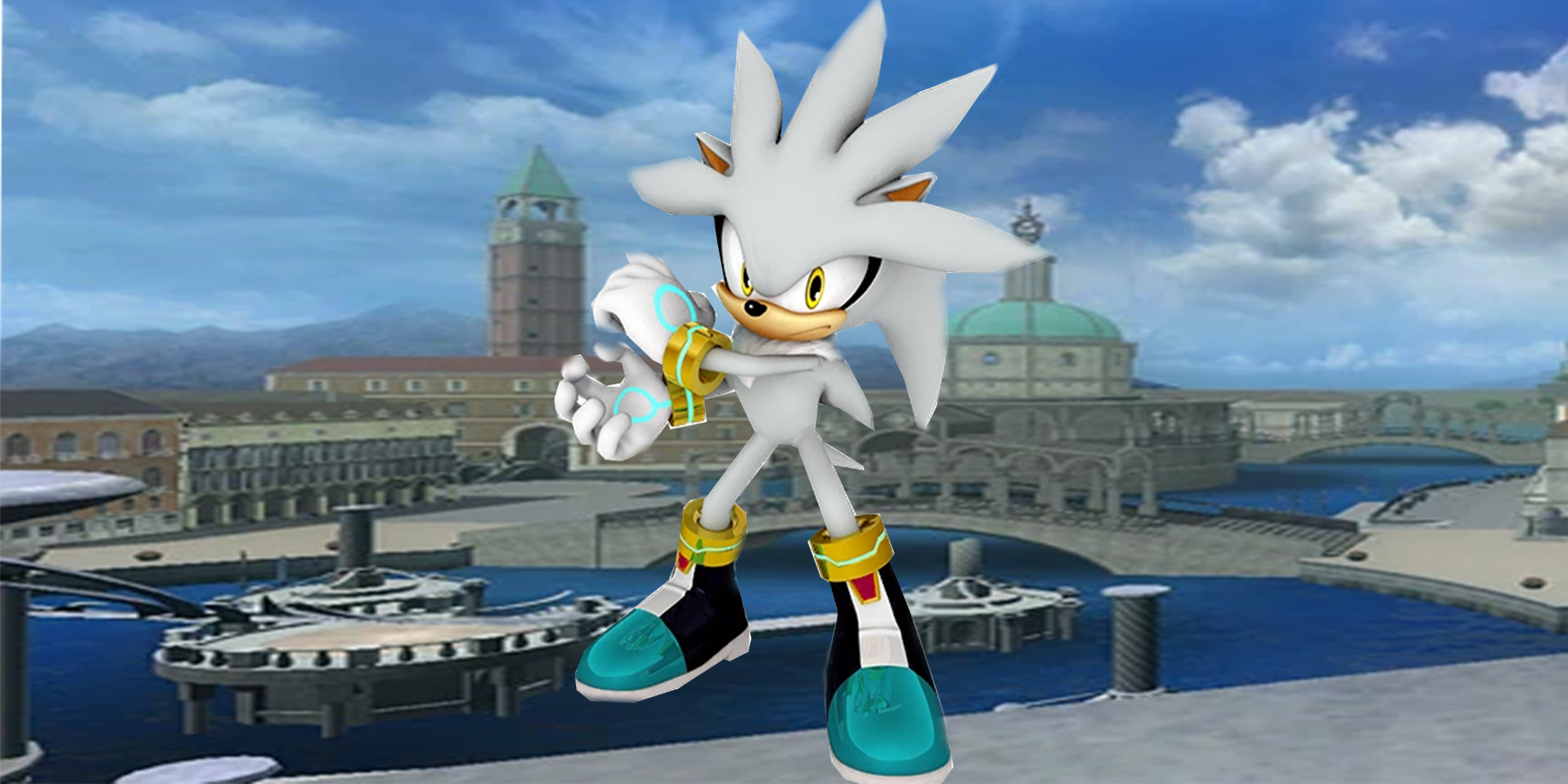Highlights
- Sonic's vocal themes tell stories of friendship, character growth, and courage, showcasing his carefree and fast-paced personality.
- Each character's theme song, like Tails' "Believe In Myself," reflects his personal journey and development in the Sonic franchise.
- Unique angles, diverse instrumentation, and deeper meanings in vocal songs make them some of the best character themes in the series.
Vocal themes have remained an important staple of the Sonic franchise since the hedgehog and friends entered the 3D realm in 1998. Yet even before that, during the Classic Era, vocal songs existed, serving as opening and ending themes in Sonic CD, and course themes in Sonic R. Vocal songs are a good way of telling fans more about the characters in an enjoyable way, and the Sonic Team composers have used them in the majority of Sonic games.
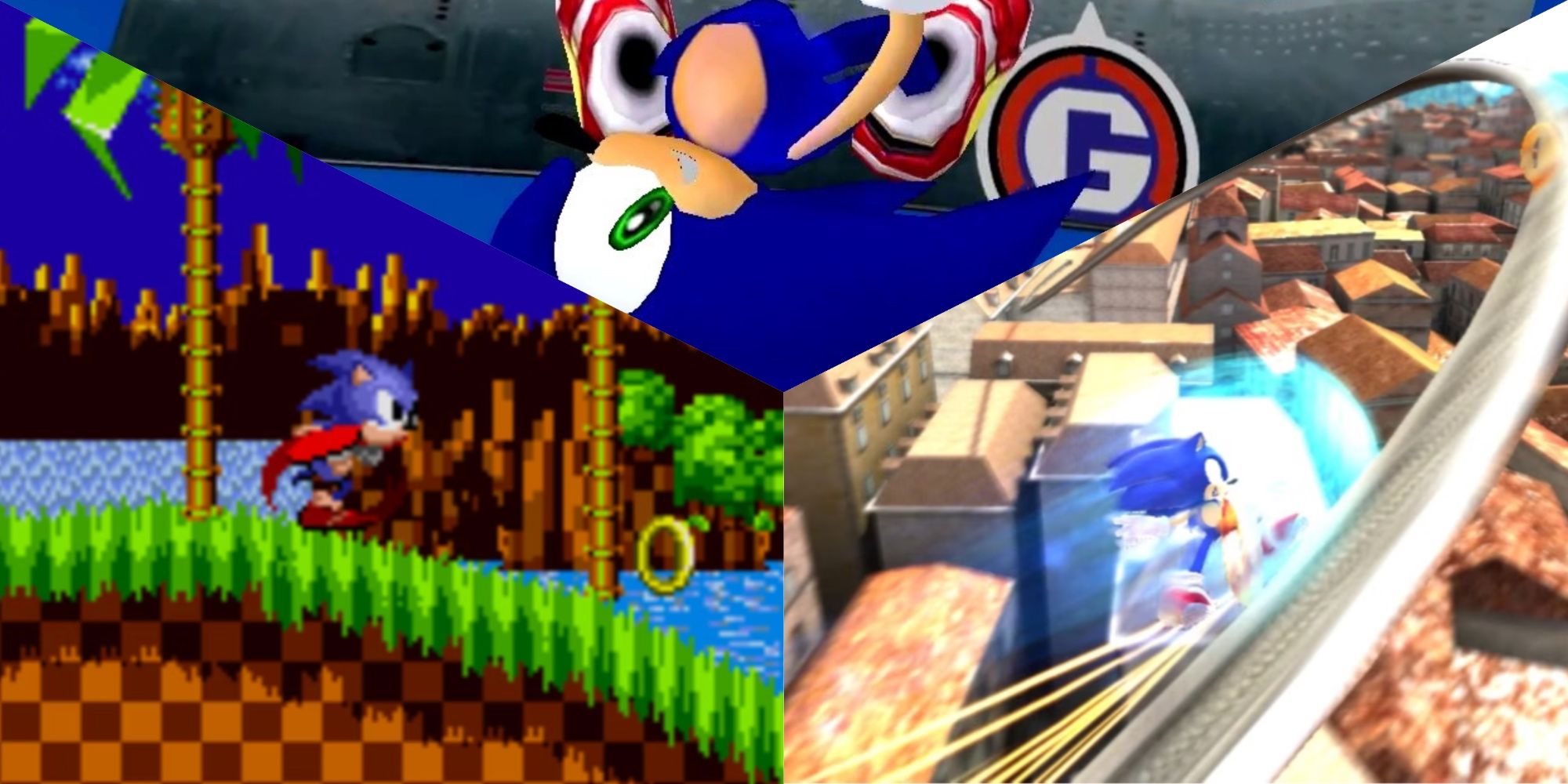
Sonic The Hedgehog: Most Iconic Themes From Every Mainline Game
Sonic the Hedgehog is renowned for having consistently good soundtracks. These songs represent the best from every entry in the long-running series.
Many characters, both playable and non-playable, have received their own theme songs, written in their voice, with lyrics describing their character growth, story, and how they see the world. Some also work as standalone songs, able to be enjoyed apart from the game, due to their relatable lyrics. Others are more game-specific, but however they stand, these are great songs showcasing diverse instrumentation and deeper meanings, making them some of the best character themes in the series.
There are many vocal themes in the Sonic franchise. As such, this list is limited to the personal themes of playable characters from the main series.
9 Lazy Days (Livin' In Paradise)
Big The Cat's Unique And Only Theme Song
- First Appearance: Sonic Adventure
Though Big the Cat was not a popular character upon his debut, he has since seen a renaissance and appeared in Sonic Frontiers and the TV series Sonic Prime. His original theme was the upbeat and jazzy “Lazy Days” sung by Ted Poley, who also performed the highly iconic and beloved track, "Escape From the City" with Tony Harnell. "Lazy Days" describes Big enjoying his easygoing life, living in the jungle with his best friend Froggy, before the latter becomes involved in the wider adventure.
It highlights the deep bond of friendship between the two and references Big’s story and why he’s so devastated when Froggy runs away. The song is from both Big and Froggy's perspectives, with alternating lines as if they're talking together. Uniquely, it is one of the few vocal songs in the whole franchise with this angle.
8 Believe In Myself
An Upbeat Track With A Relatable Message
- First Appearance: Sonic Adventure
This is the definitive theme of Tails, the humble fox who learns how to believe in his unique abilities. Version 1, performed by Karen Blake, is a slower rock song, focusing on Tails' wistfully wishing he could be like Sonic. The song showcases his character development seen in Sonic Adventure and how he learned to be independent of Sonic and stand on his own two feet. It also discusses how this wasn't easy for him and that he's “trying so hard to be strong.”
Version 2 is faster-paced and beatier, showing his growth in confidence. Sung by Kaz Silver, the lyrics are the same, but the more upbeat pop-rock tune shows how Tails has embraced his strength, and, as such, has found greater confidence in himself. His theme song “Another Passage” in Sonic Frontiers reflects him seeking out a new adventure on his own and using his wit to get by.
Tails' character grew massively after he singlehandedly saved Station Square from Eggman in Sonic Adventure. Even if "Another Passage" develops this notion, the lyrics and musical progression in "Believe In Myself" make it the definitive story of his character growth.
7 E.G.G.M.A.N.
The Doctor Finally Got His Own Vocal Song
- First Appearance: Sonic Adventure 2
Dr. Eggman has nearly always gotten instrumental themes. However, Sonic Adventure 2 saw him get his own vocal theme. “E.G.G.M.A.N.” is a catchy rock track written in his voice, reflecting Eggman’s sense of ambition. As well as his plot in the game, the song explores his overall goal to build his empire and control the world with his machines. He boasts about his genius and inventions and how they’re “perfect in every way.” The song was performed by Paul Shortino and composed by the Sound Director for the Adventure games, Jun Senoue, hence the hard-rock flavor.
Notably, this song reflects Eggman's change in character, how he’s now embraced his once insulting nickname. He’s turned the insult on its head and now uses this name to create a sense of intimidation and show his evil purposes to Sonic and Co. The use of second-person gives the feel that Eggman is talking directly to listeners; phrases like “You will see,” reflect how he’s always trying to succeed in his evil mission. This song remains a fan favorite track.
6 Unknown From M.E.
Knuckles' Funky Jazz Theme Exploring His Heritage
- First Appearance: Sonic Adventure
Knuckles' theme references his life as the last guardian of the Master Emerald, a role that was placed on his shoulders without any say in the matter, but how that is his driving ambition in everything he does. Version 1 has a greater RnB and jazz flavor, with vocals by Marlon Saunders and Dred Foxx. Listeners get a sense of Knuckles' stubbornness and how he only trusts himself to fulfill his duty to his ancestors. Lyrics like being "tougher than the rest of them" show how the echidna won't ever admit any weakness.
Version 2 from Sonic Adventure 2 was predominantly performed by Hunnid-P, who did the rap music for Knuckles' level themes. Both the style and lyrics are very different, discussing how Knuckles feels "Something's callin' me; I don't know what." This references his character growth: that after going on an adventure and helping Sonic in Sonic Adventure, he feels he'd rather do more with his life than be alone guarding the Master Emerald. Knuckles' heart is telling him that deep down, he seeks something more, though he'll never accept this due to the duty he feels so strongly.
Knuckles also received the theme "Blood Flow" for Sonic Frontiers. However, "Unknown From M.E." remains the definitive song exploring his character.
5 Follow Me
A Pop-Rock Song That Reflects Amy's Character Growth
Sonic Heroes
- Platform(s)
- GameCube , PC , PS2 , Xbox (Original)
- Released
- January 5, 2004
- Developer(s)
- Sega
- Genre(s)
- Platformer , Racing , Fighting , Action-Adventure
- First Appearance: Sonic Heroes
Amy’s original character theme "My Sweet Passion" stands out among fans for its eccentric lyrics reflecting Amy’s near obsession with Sonic. However, though "Follow Me" is Team Rose’s theme in Sonic Heroes, it mainly speaks about Amy, so isn't reflective of the team as a whole. "Follow Me" has a greater sense of maturity and showcases Amy's character growth between Sonic Adventure and Sonic Heroes. It was performed by Kay Hanley of the band Letters to Cleo.
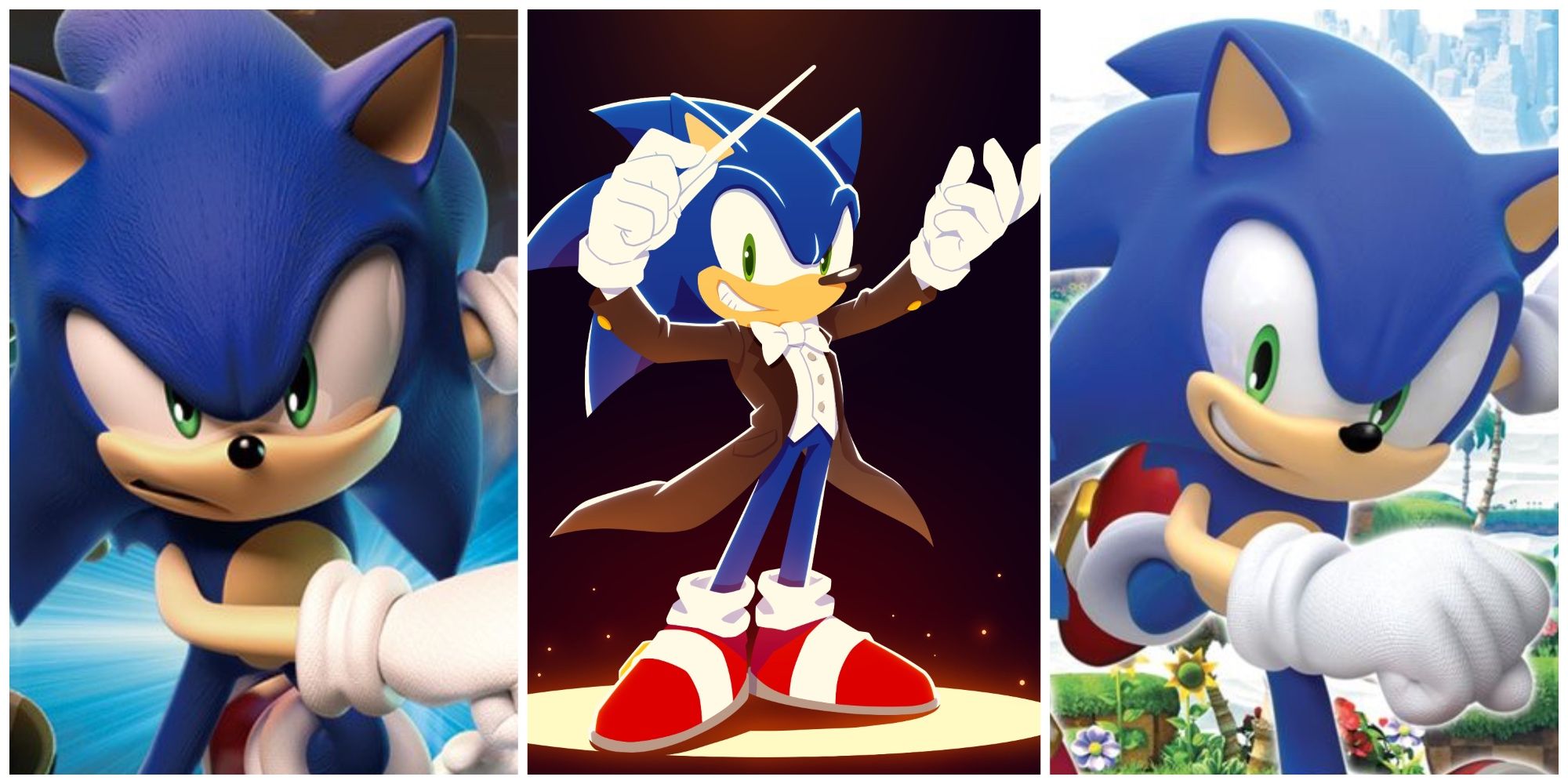
Sonic the Hedgehog: Modern-Era Soundtracks, Ranked
If there's one thing the Sonic franchise is known for, it's the music. These modern-era games each sport unique and memorable soundtracks.
"My Sweet Passion" implies Amy's only ambition is following Sonic around in an attempt to win his love. "Follow Me" shows how she trusts herself as a leader. In Sonic Adventure, her story was about character growth and learning to trust her abilities, after helping reunite a little bird with its family. She ends the story with greater trust in herself. "Follow Me" reflects this new sense of ability, and how she feels she can be a leader and get Sonic to follow her.
Her lo-fi song "Maybe If" in Sonic Frontiers also highlights her trust in herself to make her own future. However, "Follow Me" is a fully-fleshed song and the definitive look at Amy's personal growth, and was also her "Team Ultimate" theme in Team Sonic Racing.
4 Throw It All Away
Shadow's Song Deals With His Confusion And Inner Conflict
- First Appearance: Sonic Adventure 2
Shadow has had many vocal songs about him, though many exist as various ending themes for his self-titled game. The popular “All Hail Shadow” was originally the "Pure Hero Theme" in Shadow the Hedgehog, though it was remixed by Crush 40 and became his theme in Sonic '06. Whereas "All Hail Shadow" is written from the perspective of someone watching Shadow, "Throw It All Away" is in Shadow’s voice and thus is a more personal song. It stands out as unique, being in the "industrial" genre, the heavy use of inorganic sounds reflecting how Shadow was engineered by Gerald Robotnik to be the "Ultimate Life Form."
The instrumentation is unique, as industrial music is aggressive by nature, made up of harsh mechanical-sounding noises and a blend of rock and electronic music. The lyrics, performed by Everett Bradley, tell Shadow's story in Sonic Adventure 2, and how he comes to realize the truth. Once he is free from the delusion instilled in him by Gerald, Shadow seeks to throw away his hatred and vengeance and live for his true purpose. The relatable nature of the inner struggle is reflected in this song, making it one of the best character themes.
3 Fly In The Freedom
Showcases Rouge's Many Ambitions And Abilities
- First Appearance: Sonic Adventure 2
Rouge’s theme is a soulful jazz track featuring the marimba and jazz horns. Written by Fumie Kumatani, who composed Rouge’s level themes, the song reflects Rouge's multi-layered personality. From her role as a treasure hunter to her secret identity as GUN's double agent, the song highlights her strong sense of independence and reliance on herself and her skills. Tabitha Fair and Todd Cooper performed the vocals.
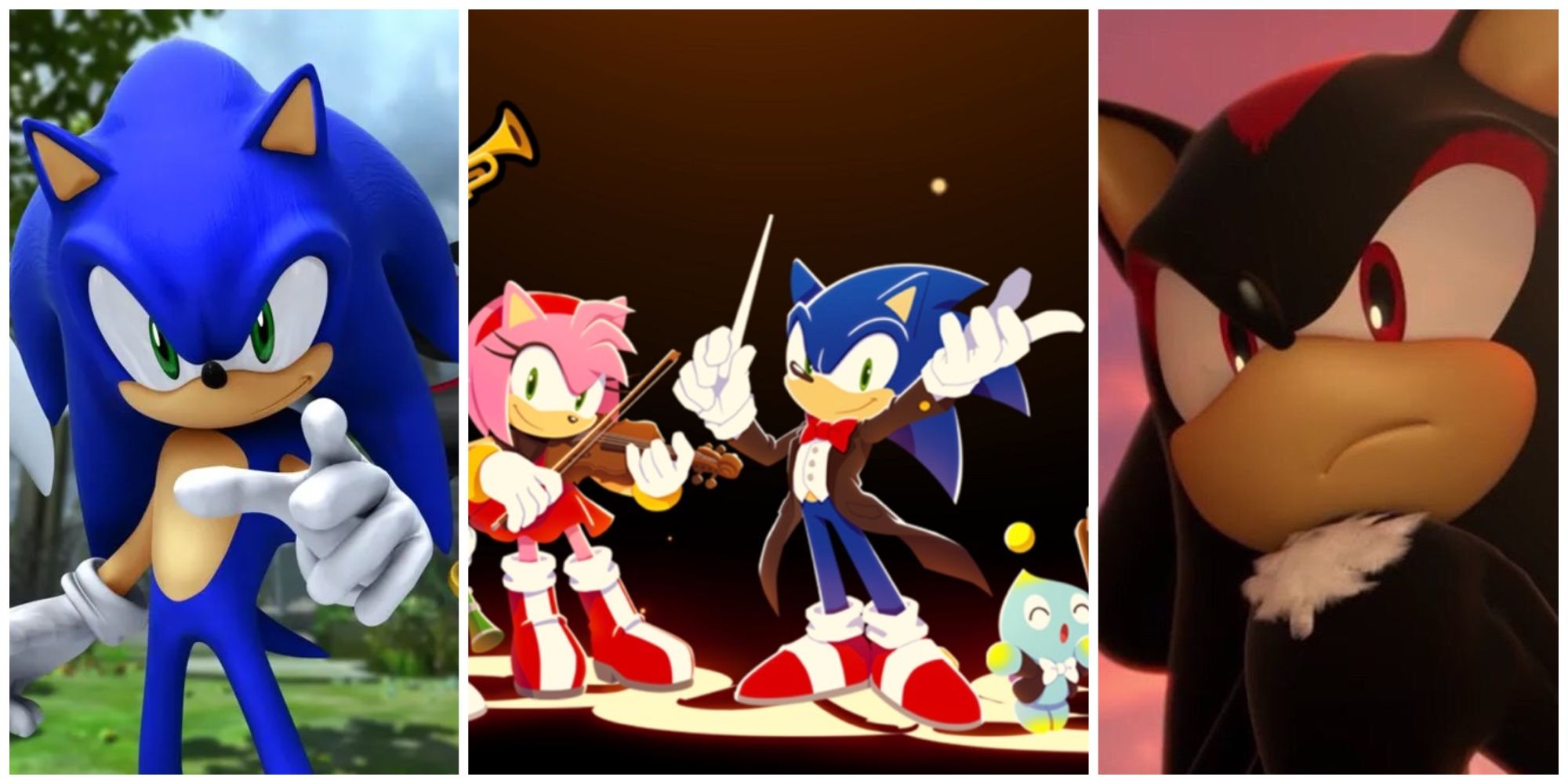
All Main Vocal Themes From The Sonic The Hedgehog Games, Ranked
Sonic’s had vocal songs for 30 years, representing a wide range of musical genres.
Midway through, the song showcases another dimension to Rouge’s personality, exploring what she’s really looking for. Though Rouge loves her role as a spy and stealing gems, she seems to be searching for something else. At the end of Sonic Adventure 2, Knuckles asks her if she’ll continue her job, to which she replies: ''I've got something better than jewels that I'm thinking about right now.''
However, the song is bookended by the fact she loves her role as a hunter, and how she wants to “keep it forever." She loves the freedom and independence it offers, as well as the opportunity to get the treasures she loves. This smooth jazz track with its deeper meaning makes for a fun listen, making it a great character theme.
2 It Doesn't Matter
Sonic's Rock Theme Reflects His Carefree Attitude
- First Appearance: Sonic Adventure
Sonic the Hedgehog has had many themes throughout the franchise. However, some also serve as the game’s main theme, as is the case with the ever-popular “His World,” "Open Your Heart" and "Live and Learn." In Sonic '06, Sonic's theme is “Sweet Dream," but this was a strange choice for the hedgehog's vocal song. However, unlike "His World" which was written from the perspective of a bystander, "It Doesn’t Matter" was written as Sonic's personal theme, in first-person.
Version 1, sung by Tony Harnell, is a hard-rock anthem, reflecting Sonic's free-spirited nature and how he strives to do the right thing in all he does. Sonic has a “heart of gold” and lives "by his word" that he'll always be there to help others and thwart Eggman's evil plans. Version 2 is typically more well-known and preferred over the original for its cool rock instrumentation and faster pace, which reflects Sonic’s speed and carefree nature more accurately. Despite the slight lyrical change between the two, both songs do justice in showcasing Sonic's personality and work as standalone songs due to their relatable lyrics.
1 Dreams Of An Absolution
Silver's Theme Is Popular For Its Positive Outlook Despite A Hopeless Situation
Sonic the Hedgehog (2006)
- Released
- November 14, 2006
- Developer(s)
- Sonic Team
- Genre(s)
- Action-Adventure , Platformer
- First Appearance: Sonic The Hedgehog (2006)
Silver the Hedgehog hails from a ruined future, and yet his theme reflects his sense of optimism and how he strives to survive and battle the monster Iblis with his best friend, Blaze. He dreams of a better life even though it “just stays the same.” Silver eventually despairs, something the evil Mephiles uses to trick him and send him to the past. However, Silver comes to realize the truth and fights for the right thing, which resolves the past, present, and future problems. Performed by Bentley Jones, this techno song was composed by Mariko Nanba, who worked on much of Sonic '06's brilliant soundtrack.
There’s also a sense of sadness in this song, as though he eventually achieves his dreams, he loses personally when Blaze gives herself up to stop Iblis. Silver ends up being the only one who loses someone dear to him when everything else is put right. As a testament to this track's endearing popularity, it reappears in Sonic Generations, Team Sonic Racing, and even Yakuza4 and 5.
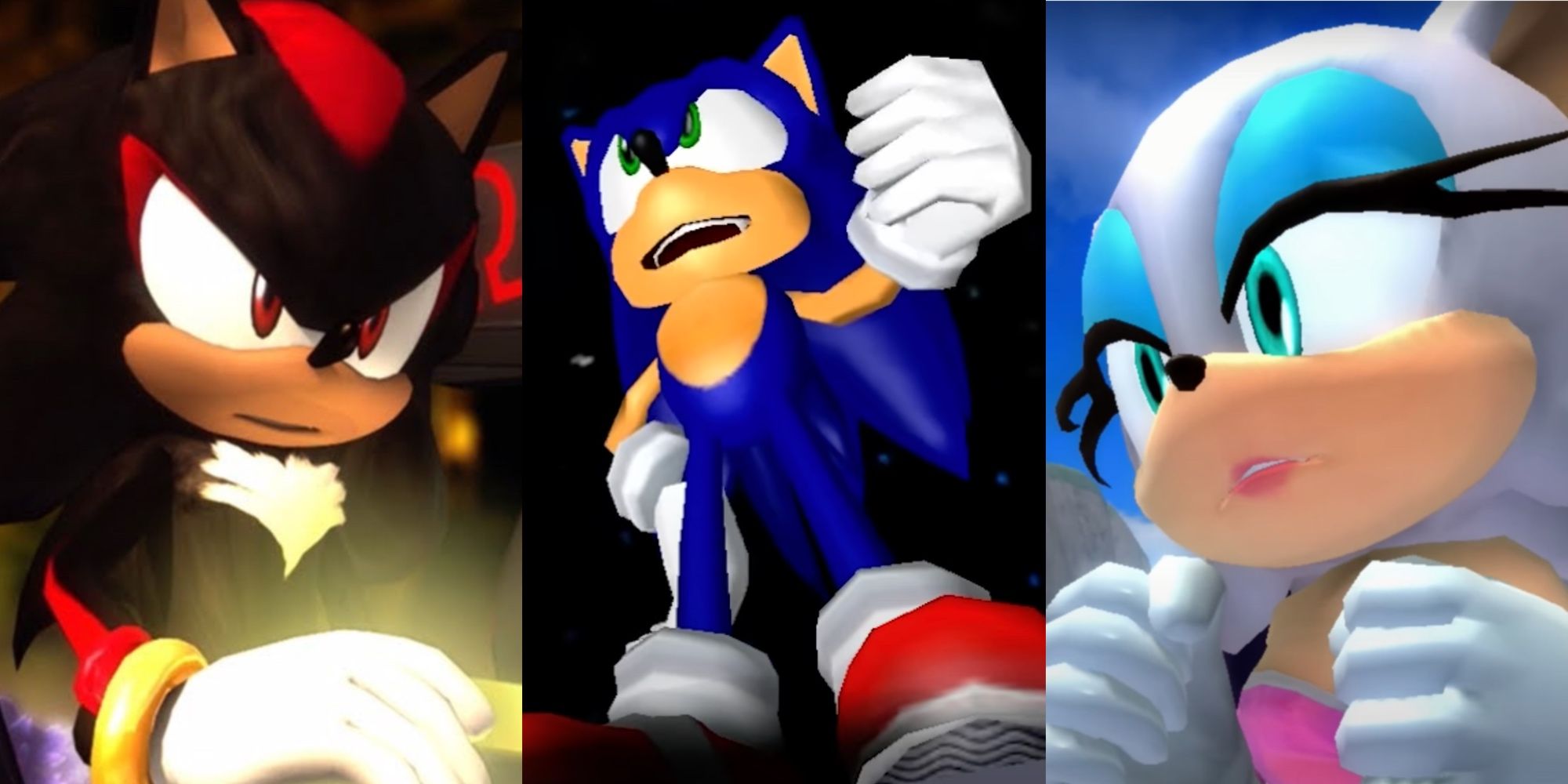
Sonic the Hedgehog: 12 Best Quotes From the Games, Ranked
Plenty of characters in the Sonic games have spoken memorable quotes, both heartwarming and funny. But, which stand out among the best?

